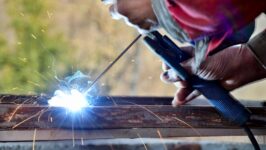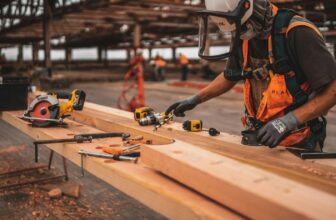
Understanding Glass Fabrication: Key Insights into the Industry

Glass fabrication is a crucial sector that plays an integral role in various industries, from construction to automotive and even art. As a multifaceted process, it involves cutting, shaping, and finishing glass to meet specific design and functional requirements. If you’re interested in the glass fabrication company, here are several key aspects to consider.
The Fabrication Process
The glass fabrication process typically begins with the selection of raw glass, which can vary in type, thickness, and color. Common types include float glass, tempered glass, laminated glass, and insulated glass. Each type has its unique properties and applications.
Once the type of glass is selected, the fabrication process involves several steps:
Cutting: Large sheets of glass are cut down to size using specialized machinery.
Shaping: Depending on the project, glass may be bent or shaped using heat or other techniques.
Drilling and Edging: Holes can be drilled for fixtures, and edges can be polished or beveled for aesthetics and safety.
Coating and Treatments: Glass can be treated with various coatings to enhance properties such as UV protection, energy efficiency, or aesthetic appeal.
Applications of Fabricated Glass
Fabricated glass is used in a wide range of applications. In construction, it is commonly found in windows, doors, and facades, contributing to energy efficiency and modern aesthetics. In the automotive industry, glass is vital for windshields, mirrors, and displays, combining safety with style.

In the world of interior design, fabricated glass is utilized in everything from shower enclosures to decorative partitions. Additionally, the art world has seen a resurgence in glass sculptures and installations, showcasing the versatility and beauty of this material.
Sustainability in Glass Fabrication
As environmental concerns grow, many glass fabrication companies are adopting sustainable practices. This includes sourcing recycled glass, implementing energy-efficient manufacturing processes, and reducing waste.
Recycled glass not only conserves resources but also requires less energy to produce. Companies are increasingly focused on reducing their carbon footprint, which has become a selling point for environmentally conscious consumers.
The Importance of Technology
Modern glass fabrication relies heavily on technology. Computer Numerical Control (CNC) machines, laser cutters, and advanced software have revolutionized how glass is shaped and finished. These technologies allow for greater precision, consistency, and complexity in designs, enabling architects and designers to push the boundaries of creativity.
Moreover, advancements in glass coatings and treatments have improved performance characteristics. For instance, low-E coatings can enhance energy efficiency, while self-cleaning glass simplifies maintenance.
Choosing a Glass Fabrication Company
When selecting a glass fabrication company, several factors should be considered:
Experience and Expertise: Look for a company with a proven track record in the specific type of glass work you require.
Quality Control: Ensure that the company adheres to stringent quality control measures to deliver durable and reliable products.

Customization Options: A good fabrication company should offer customization to meet your unique design and functional needs.
Sustainability Practices: Consider companies that prioritize eco-friendly practices in their operations.
Future Trends in Glass Fabrication
The glass fabrication industry is continuously evolving. One emerging trend is the integration of smart technologies, such as electrochromic glass that can change opacity with a simple switch. This innovation not only enhances privacy but also improves energy efficiency.
Another trend is the growing interest in architectural glass that promotes biophilic design, encouraging a connection between people and nature. This type of glass often incorporates elements like natural light and outdoor views, creating healthier living and working environments.
Final Words
Glass fabrication is a dynamic industry that offers a blend of artistry and engineering. With its wide range of applications, emphasis on sustainability, and integration of cutting-edge technology, glass fabrication continues to play a pivotal role in shaping our built environment. Whether you’re an architect, a builder, or simply someone interested in design, understanding this field can provide valuable insights into the future of architecture and design.



















































































